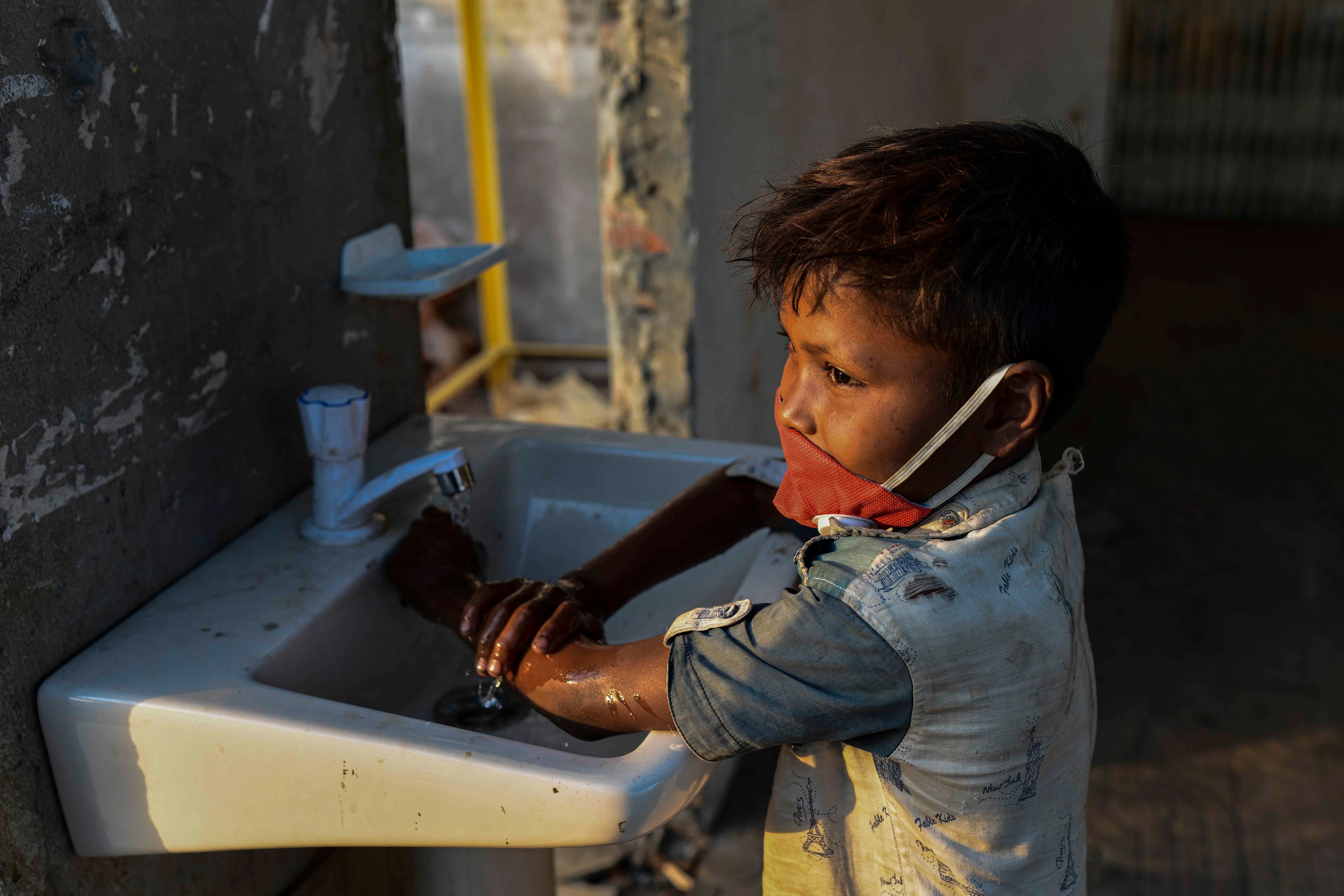COVID-19’s Devastating Impact on Children
Governments Should Mitigate Harm, Protect Most Vulnerable
(New York) – The COVID-19 crisis has a potentially far-reaching, long-term negative impact on children around the world, Human Rights Watch said in a report released today. The impact is likely to be devastating, even though children who contract COVID-19 appear to have less severe symptoms and lower mortality rates than other age groups.
More than 1.5 billion students are out of school. Widespread job and income loss and economic insecurity among families are likely to increase rates of child labor, sexual exploitation, teenage pregnancy, and child marriage. Stresses on families, particularly those living under quarantines and lockdowns, are increasing the incidence of domestic violence. As the global death toll from COVID-19 increases, large numbers of children will be orphaned and vulnerable to exploitation and abuse.
“The risks posed by the COVID-19 crisis to children are enormous,” said Jo Becker, children’s rights advocacy director at Human Rights Watch. “Governments need to act urgently to protect children during the pandemic, but also to consider how their decisions now will best uphold children’s rights after the crisis ends.”
A child washing hands with anti-bacterial soap as a preventive measure against COVID-19, at Sadarghat Launch Terminal, in Dhaka, Bangladesh, on March 27, 2020.
© 2020 Zabed Hasnain Chowdhury/Sipa USA via AP Images
For many children, the COVID-19 crisis will mean limited or no education, or falling further behind their peers. More than 91 percent of the world’s students are out of school, due to school closures in at least 188 countries. The crisis has exposed vast disparities in countries’ emergency preparedness, internet access for children, and availability of learning materials. Although much focus has turned to online learning platforms, many public schools are not set up to use them or do not have the technology and equipment to provide online teaching. Nearly half of the world has no internet access.
Added family stresses related to the COVID-19 crisis – including job loss, isolation, excessive confinement, and anxieties over health and finances – heighten the risk of violence in the home, including both between partners and by caregivers against children. The United Nations secretary-general has reported a “horrifying” global surge in domestic-based violence linked to COVID-19, and calls to helplines in some countries have reportedly doubled. Child abuse is less likely to be detected during the COVID-19 crisis, as child protection agencies have reduced monitoring to avoid spreading the virus, and teachers are less able to detect signs of ill treatment with schools closed.
Experts estimate that the global total of COVID-19 deaths could eventually reach 10 to 40 million, which will inevitably leave many children without one or both parents or other caregivers. Orphaned children are particularly vulnerable to trafficking and other exploitation, including sexual exploitation, forced begging, selling goods on the streets, and other child labor. Older children often drop out of school to try to support younger siblings.
The global economic downturn caused by the COVID-19 crisis, including massive global job losses, is likely to increase rates of child labor and child marriage. Globally, an estimated 152 million children were already engaged in child labor before the COVID-19 pandemic, with 73 million engaged in hazardous work. Research has shown that child labor is highly associated with financial shocks experienced by a family, such as illness, disability, or a parent’s loss of employment.
The COVID-19 crisis also heightens the risk of online child sexual exploitation. Europol has reported that law enforcement partners are reporting “increased online activity by those seeking child abuse material,” as a result of COVID-19. Children are spending more time online due to school shutdowns, and may be anxious or lonely because of isolation and confinement, making them more vulnerable to online predators.


No hay comentarios:
Publicar un comentario